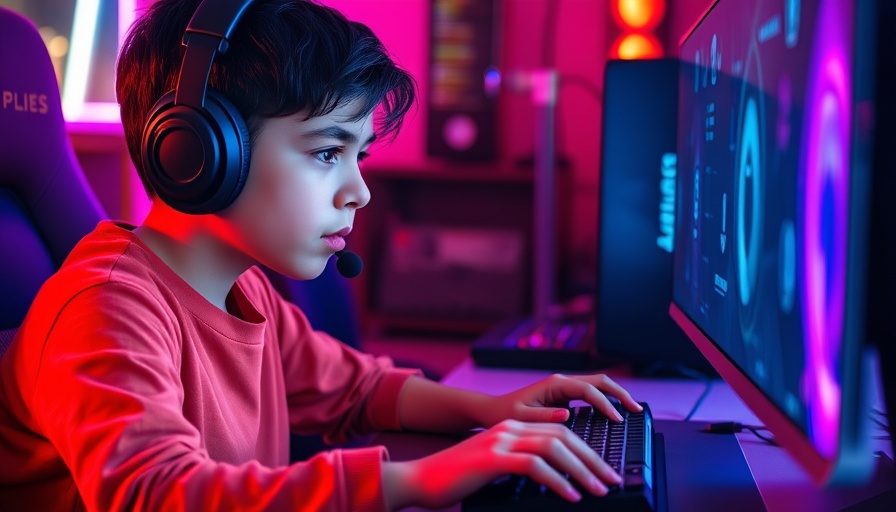
Understanding Video Game Addiction: A Deeper Dive
Video games can be a source of immense joy and entertainment. However, for some teens, they can potentially lead to excessive gaming habits that resemble addiction. A recent study from the Media Neuroscience Lab at UC Santa Barbara has shed light on this phenomenon, suggesting that the roots of gaming addiction in adolescents often lie in preexisting mental health issues rather than the games themselves.
The Role of Mental Health in Gaming Behaviors
The study led by researchers Kylie Falcione and René Weber explored the relationship between adolescent psychopathology and gaming disorder. By analyzing data from 4,289 U.S. adolescents, the researchers focused on various factors, including previous mental health conditions like depression and anxiety. Their findings revealed that teens already affected by mental health challenges are more likely to turn to gaming as a coping mechanism, resulting in problematic gaming patterns.
How Gaming Becomes a Coping Mechanism
For adolescents dealing with social issues or depressive symptoms, video games can serve as an escape from reality. Rather than leading to a purely enjoyable experience, these games may become a way to mask underlying struggles. Falcione explained that adolescents at risk prior to engaging in gaming demonstrate a higher likelihood of developing disordered gaming behaviors, effectively validating the notion that unhealthy gaming habits can stem from mental health challenges.
Signs Parents Should Look For
Understanding the signs of gaming disorder can help parents intervene early. Look out for behavioral changes in your teen, such as withdrawal from social activity, neglecting responsibilities, or showing distress when unable to game. Additionally, if gaming dominates conversations or daily routines, it could signal a deeper issue. Recognizing these patterns allows parents to approach the topic compassionately and provide support.
How to Tackle Gaming Addiction
It’s important for parents to engage in their children’s gaming habits positively and constructively. Encouraging moderation is key. Consider setting screen time limits or introducing device-free family activities to create balance in their lives. Activities like board games, outdoor sports, or creative arts can foster connections and help divert attention from screens, all while promoting a healthier family dynamic.
The Importance of Open Communication
Creating an open channel of communication is vital for understanding your child's gaming habits and mental health. Discuss gaming experiences regularly, and encourage your teen to share their feelings related to gaming. Your support can empower them to confront their gaming behavior; it shows them that they aren’t alone and strengthens their emotional resilience.
Seeking Professional Help
If you notice a persistent gaming problem or other concerning behaviors, consulting a mental health professional who specializes in adolescent behavior or digital addiction may be necessary. They can provide guidance tailored to your child's specific situation, helping them navigate their mental health challenges while addressing any problematic gaming behavior.
Future Insights on Gaming and Mental Health
The research highlights the need for continued exploration of the relationship between gaming and mental health. As technology continues to evolve, so does the necessity for resources and education regarding healthier gaming habits. Awareness, support, and proper intervention can help change the narrative surrounding gaming addiction, making it a safe form of entertainment rather than a detrimental coping mechanism.
As technology advances, understanding how it impacts mental health in our children becomes increasingly crucial. By staying informed, engaged, and proactive, parents can help create a supportive environment for their teens that fosters healthy gaming habits without sacrificing their mental well-being.
 Add Row
Add Row  Add
Add 




Write A Comment